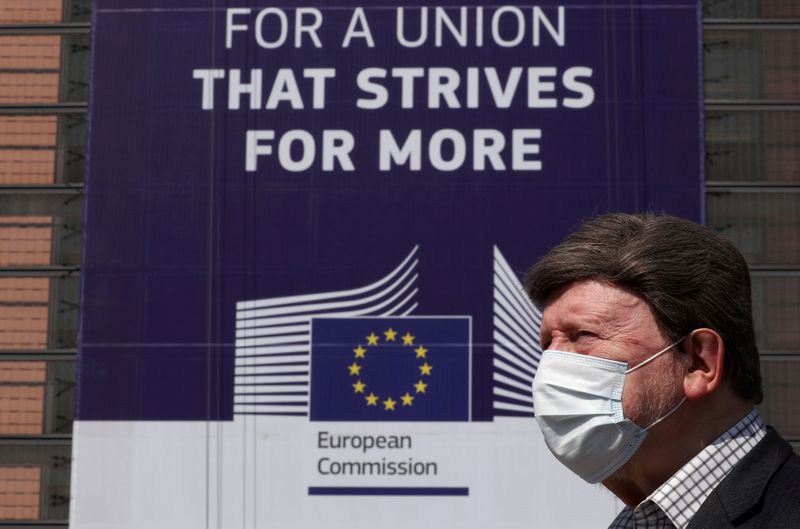This post was originally published on this site
https://i-invdn-com.akamaized.net/trkd-images/LYNXNPEG3P0H9_L.jpg
LONDON (Reuters) – Planned European Union rules requiring investments to be in line with climate policy should be used to guide economic recovery measures after the coronavirus pandemic, despite not yet being law, the bloc’s expert advisers said on Monday.
With the bloc headed for a steep recession and its executive, the European Commission, drawing up a trillion-euro recovery plan, calls are growing from politicians, companies and campaigners to make sure the money does not prop up environmentally damaging industries.
The Commission had planned to introduce rules on which investments can be called “green” from 2021, forcing providers of financial products to disclose which investments meet the criteria – known as the EU “sustainable finance taxonomy”.
However, the Commission’s Technical Expert Group (TEG), a 35-member panel of investors, business leaders and climate policy experts, said the rules – designed by the TEG, at the Commission’s request – should inform stimulus plans now.
“The opportunity for a resilient, sustainable and fair economic recovery is right before us. We encourage all governments, public institutions and the private sector to use the right tools for the job,” it said in a statement.
The TEG has also drawn up a green bond standard for the EU and a framework to assess whether financial instruments, contracts or investment funds conform with the goals of the Paris Agreement on climate change.
“There’s going to be, potentially, a surge of public and private spending to reboot the economy,” said Nathan Fabian, chief responsible investment officer at the U.N.-backed Principles for Responsible Investment investor group and member of the TEG.
“If some of the financing goes to propping up polluting practices, it just increases the risk exposure for these investors when more disruptive (climate) policies have to inevitably be implemented later.”
Ultimately, it will be for the Commission and member state governments to decide how to spend the money.
Sandrine Dixson-Declève, co-president of the Club of Rome think tank and also on the TEG, said criteria to block polluting investments should be applied “if you want public investment from the European Investment Bank, the European Central Bank – if you want anything from the European pot”.
The European Commission could not immediately be reached for comment.
Allianz (DE:ALVG) Global Investors’ Steffen Hoerter, also a TEG member, said while COVID-19 had battered the economy and caused extreme market volatility, the fallout from climate change “will be much worse and, unlike the virus, it will not go away”.
“There is absolutely no reason for governments and investors to step back from corporate climate objectives,” he said. “If we do this right now, it will backfire.”

